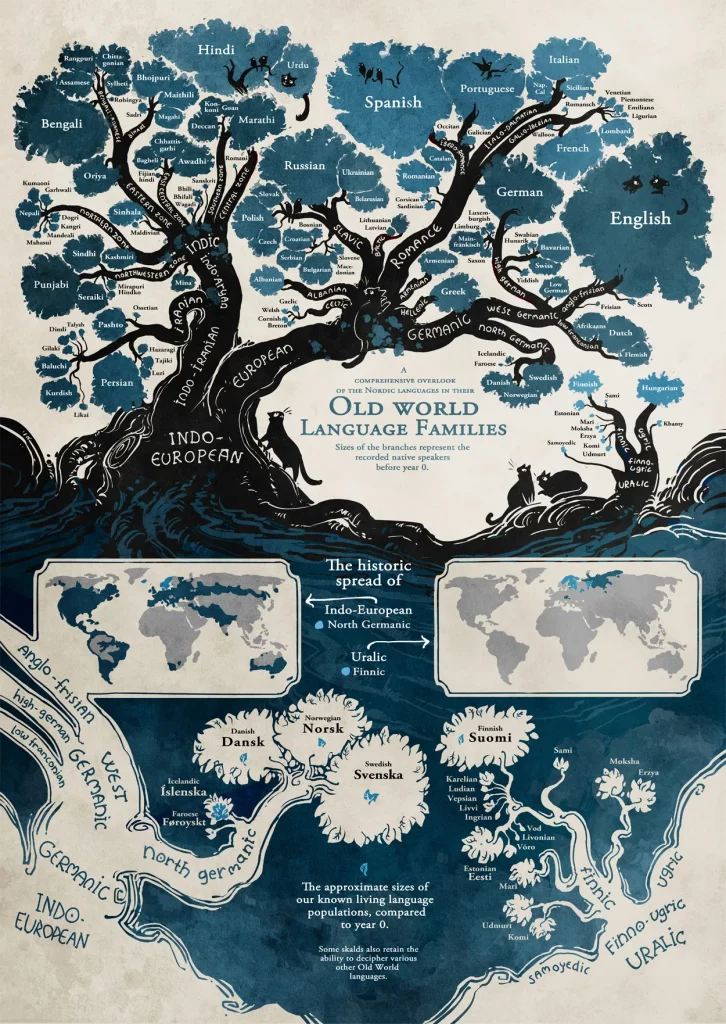He is nearly two and yet the only comprehensible words that come out of his mouth are Tethe and saaaa. And yes, a hit of the epiglottal “grrrr” as well, serving as a possible prelude to Go (of the ready steady series).
Some speak faster, some take their time. I don’t quite concern myself yet, but I am excited to know what he will end up speaking when he finally does. What languages will he grasp? At present, he listens to a hotchpotch of Hindi, Telugu, Tamil, Punjabi and occasional Bengali as well. Sanskrit too. All he start speaking with a conventional papa or mama, or break out into O Anteva Mava is anyone’s guess. But excited nevertheless.
Language is fascinating, and while it is a barrier for some, it is a bridge for others. The advent of real-time translation and other such tools (such as subs on OTT) have bridged the language gap, so one should try to watch and hear more of other tongues. It helps to get an insight into their culture, their thinking, their ways of living.
Here is what I wrote a few months back. In the same context!
Did you know that strozzapreti (a type of pasta) means ‘strangled priests’, or that vermicelli means ‘little worms’?
Or that the Scottish word sgiomlaireachd (yes it’s a mouthful) means ‘the habit of dropping in at mealtimes’?
Of course, you know that German is full of jaw-crunching words like Wirtschaftstreuhandgesellschaft (business trust company), Bundesbahnangestelltenwitwe (a widow of a federal railway employee), and Kriegsgefangenenentschadigungsgesetz (a law pertaining to war reparations)…
If there is one single event that propelled humankind forward, and set us on course to civilization, it is language. No one still knows for sure how it evolved, but language enabled communication, and communication made humans work in groups and working in groups made everything possible, from hunting better kill to building, farming and trade.
The study of languages (linguistics) is fascinating, in the sense that it helps discover and map out parts of history that have no written record. By examining similarities in language, linguists are able to track migration of populations over millennia!

Language is the base of civilization, and India has a lion’s share of the world’s languages and dialects. We have 22 official languages, and we speak the world’s third (Hindi), sixth (Bengali), thirteenth (Punjabi) and seventeenth (Tamil) most spoken languages in the world, besides two of the world’s oldest languages – Sanskrit and Tamil.
Yet, we choose to communicate in English as our first language. Our internet is mainly in English, our phones have English menus and even when we speak to each other, we mostly default to English.
Our excuse usually is that it helps us be globalized. Well, the French mostly speak French, Germans German, Chinese Mandarin…I don’t see them doing too badly:)
I have resolved to teach my child Hindi, Punjabi, Sanskrit and one Dravidian language. English he will learn in school, and learn it well, but the connect with India is through our rich culture and language. I hope that he can learn well and appreciate the diversity in the land that he belongs to, and in turn I would have done my bit in passing it forward.
How many languages do you plan to teach your children? Do let me know:)
See you tomorrow!
